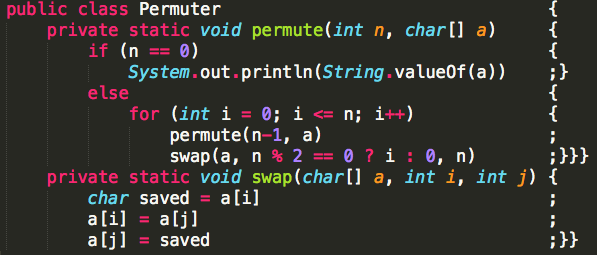

Hellwig was a bit crusty about being overruled by Torvalds, it seems.


Hellwig was a bit crusty about being overruled by Torvalds, it seems.


Gamers complain about cancel culture, but they’re the first to demand changes and threaten to boycott a game for daring to include any “woke” (diverse character) content.
It’s absurdly ironic and hypocritical.


yq can do both JSON and YAML :)


It’s not as useful, sadly. Nohup disconnects standard input, output, and error. With screen or tmux, you can reattach them later.
Who says it can’t be?



10 Pbps |
|
}
200 Mbps | # #
| # #
| # #
-------
V O
E T
R H
I E
Z R
O S
N
*latency not pictured
**measurements taken in test environment under ideal weather conditions


What’s next, schools? Oh, wait. Well, surely not public infra—nevermind. At least kids are safe? No? All right then.


More or less, minus the CGI.


In late-stage capitalism, they are.


“We have thoroughly investigated ourselves and found no wrongdoing. On an unrelated note, is anybody willing to sell us some more white phosphorus?”


It’s not the Chromium team. Google could have added JPEG XL to Android, but that’s been stalled for nearly two years with zero explanation as for why.
The whole thing smells of managerial interference somewhere.


Interestingly, the reference implementation libjxl appears to be a Google project. They’re all over the patents file and CLA.
If Mozilla isn’t merely being hopeful about having the same team create a Rust implementation, that might actually mean there’s internal interest within Google. Assuming they pull it off, the bullshit reason for refusing to add JPEG XL to Chromium might finally stop being a blocker.


And yet, some people vehemently refute that it’s a genocide…


There’s always BSD, Hurd, Darwin… or NT 🤮


The kernel. I can take or leave most things, but I’m not going back to the days of writing directly into memory-mapped registers.


I understand his experience is hard to match, we all have something in our lives we’re that good at
At some point, that mix of experience and ego becomes a significant liability. He’s directly hurting the adoption of Rust in the kernel, while the C code he’s responsible for is full of problems that would have been impossible if written in safe Rust.
CVE-2024-42304 — crash from undocumented function parameter invariants
CVE-2024-40955 — out of bounds read
CVE-2024-0775 — use-after-free
CVE-2023-2513 — use-after-free
CVE-2023-1252 — use-after-free
CVE-2022-1184 — use-after-free
CVE-2020-14314 — out of bounds read
CVE-2019-19447 — use-after-free
CVE-2018-10879 — use-after-free
CVE-2018-10878 — out of bounds write
CVE-2018-10881 — out of bounds read
CVE-2015-8324 — null pointer dereference
CVE-2014-8086 — race condition
CVE-2011-2493 — call function pointer in uninitialized struct
CVE-2009-0748 — null pointer dereference


100%. Whatever Intel does at this point, I don’t trust it to be a fix so much as a mitigation or attempt to delay the inevitable until a few years after the warranty period.
If it’s possible for people to return their 13th/14th gen processor and trade up for a 12th gen, that would be the safest solution.


Moore’s Law is Dead shared an interesting video yesterday about these chips. Supposedly, leaks from his sources at Intel say that high voltages being pushed through the ring bus cause degradation. The leaks claim it shares the same power rail as the P and E cores, meaning it’s influenced by the voltage requested by the cores.
For context, the ring bus is responsible for communication between cores, peripherals, and the platform. This includes memory accesses, which means that if the ring bus fails and does something incorrectly, it could appear normal but result in errors far down the line.
Going beyond the video specifically, and considering what others have suggested as workarounds, it seems like ring bus degradation might be a decent candidate for the actual root cause of these issues.
Some observations around chips degrading were:
Some of the suggestions to work around the issue were:
All of those can be related to stress being put on the ring bus:
I’m not claiming anything definitive, but I think my money is on this one.


They certainly tried with Secure Boot. Thank Stallman that UEFI is a somewhat-open architecture.
Trump supporters: “that’s fine, the president isn’t congress”